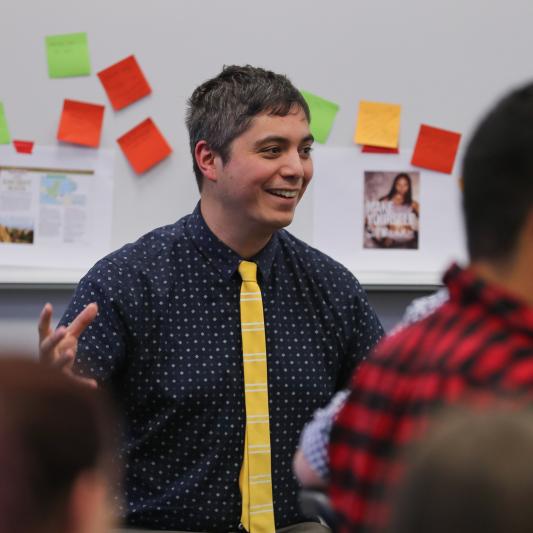
Antero Garcia
Antero Garcia, an assistant professor at the Graduate School of Education, originally wanted to be a music journalist. In college he wrote freelance music reviews and interviews, often attending three or four concerts a week. “I realized I couldn’t make enough money doing that, so the fallback was to become a teacher, which is the most unromantic thing possible.”
When he made that decision, though, he took it seriously. “From that moment on, being a teacher is what I was invested in, excited about, passionate about. I woke up every day with my attention focused on the classroom.”
Garcia’s interest in media of all types – he worked weekends at a Hollywood newsstand to get book discounts for his classroom – influenced the way he taught his students and the research he conducts today, which largely focuses on technology policies in schools. “When it comes to technology,” he says, “these policies are ones that adults put in place because we’re afraid of the power of young people and not being the experts in the room. We take away devices that allow them to communicate with one another in ways that we don’t have control over. If we really wanted to push young people to be leaders, we’d try to learn alongside them.”
Photo by Jim Gensheimer



